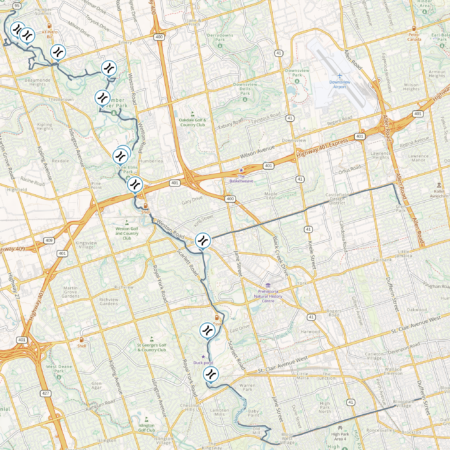Doubtless for those of us who have been following the public health advice to avoid contact with others for nine months or so there have been many disappointments and frustrations. At the same time, perhaps we have each discovered a thing or two from pandemic living which we will stick with beyond. Some of mine:
1) Buff neck gaiters
A couple of months into the pandemic my Crow’s Nest barbershop hair cut had reached the point that whenever I moved my head it would be poking me in the eyes. Furthermore, with long hair any time I took a nap or wore a hat I would look unpresentable for any subsequent online meetings. I tried hair product, but it was a pain and easily mussed out of place. Bobby pins don’t grip my hair and just fall out within minutes.
Inspired by the ultra-light thru hiker and YouTuber Darwin, I ordered a Buff neck gaiter. It can be worn over the face as a mask in a pinch where you have nothing better, but mostly it’s an easy way to wrap up my hair in a way that keeps it out of my eyes and keeps me from having to have a shower to reset my hair before any time when someone will see me.
I have been wearing one almost continuously for months now: either their light weight synthetic option which I think feels nicer on the head and face or their light weight merino wool which I think feels a little rough and strange but which is definitely warmer.
During a recent 28 km walk at night I decided it was worth ordering a heavy weight merino wool Buff for January and February, but all the interesting patterns were sold out so I ordered a midweight merino and another synthetic as a backup or something to wear around my neck when the first one is on my head.
2) Taster’s Choice instant coffee
For the most part, my coffee regimen in the last few years has been dark Starbucks roasts made at home in a French press. Of course, that means buying bags of beans fairly often, dealing with coffee grounds (gross and annoying if you try to compost them), and cleaning the French press.
Recollecting that years and years ago I had found Taster’s Choice more palatable than other freeze-dried coffees, I bought some early in the pandemic. Now, I think it will be my permanent form of coffee. It’s glorious to go with no mess from a boiling kettle to a cup of coffee instantly, and I feel like in terms of taste and satisfaction it’s comparable to the elaborate bean sort.
3) Gaia GPS
The free version of this iOS app has done much to enhance my exercise walks in recent months. It allows you to easily record any track that you walk, laying down a collection of coloured lines over a street map of the city. This is helpful because it shows me instantly which directions and neighbourhoods I have already explored to excess and which are relatively fresh. In many areas, a glance lets me choose a route based on a set of streets which I haven’t walked down so far in the pandemic. In many cases it’s also helping me invent non-road routes between places I frequently visit, like using Bickford Park to walk north from College to Bloor rather than a street with traffic.
My favourite recent discovery is a fairly loop-shaped urban trail walk where you follow Nordheimer ravine northwest from Spadina, north of U of T campus, and then take the streets for the short connection to the start of the Beltline trail, which brings you back pretty close to where you start on the ravine trail.


